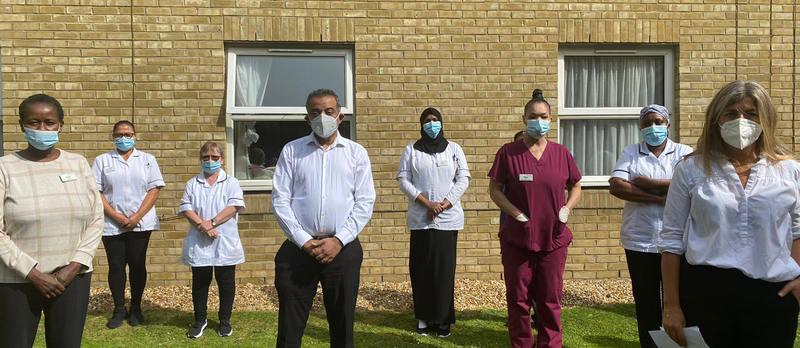New data shows 56% of care workers skip meals due to low pay
New data shows 56% of care workers skip meals due to low pay

The data, with a sample of 110 care workers, showed that financial insecurity was felt by an overwhelming number of respondents: 73% said they were struggling to afford their day-to-day essentials like food and bills, whilst 87% said they worry so much about money that it affects their everyday life.
Sadly, low pay is not only affecting the ability of care workers to pay for their everyday needs: 77% of care workers said that low pay negatively affects their mental health, whilst 72% said that low pay causes them so much worry and stress it negatively affects their work.
Previous research by the Living Wage Foundation found that three-quarters of care workers are paid less than the real Living Wage, despite having risked their lives on the frontline. Since last year, Citizens UK has been leading a campaign calling for the real Living Wage for Social Care workers, believing it’s simply not right that those who care for others aren’t paid enough to take care of themselves.
This is why we’re urgently calling on Gillian Keegan, Minister of State for Care, to ensure the government provides enough funding to local authorities to ensure all social care workers can be paid a real Living Wage.
Testimonies
I'm a single mum that worries from the day I get paid until the next payday. I have to calculate every single month to see what I've got left for food after paying mortgage and bills. I never have enough to put decent meals on the table or have extra to buy essentials such as underwear or socks.
- Anonymous care worker who took part in the research
I’m worried I'm going to use too much electricity over the winter and not have enough money to pay my bills. I also don't eat full meals so my food lasts longer.
- Anonymous care worker who took part in the research
I am constantly thinking of how I can get more money to support myself and my two children.
- Anonymous care worker who took part in the research

This research confirms what we know and have been fighting for: all key workers, including care workers, deserve to be paid at least the real Living Wage, with the pandemic only intensifying this need. More funding is needed from the Government to Local Authorities to ensure this happens in the Social Care sector, but we also need employers in the industry accrediting with the Living Wage Foundation to pay their employees a wage they can live off. We can’t ask care workers to take care of society’s most vulnerable without ensuring they can take care of themselves.
Matthew Bolton, Citizens UK Executive Director
Other findings from the data:
- 20% of care workers said they skip meals “all the time”, 38% said they skip meals ‘often’ or ‘occasionally’
- 56% said they skip meals for financial reasons
- 24% said they use a food bank or other aid provider, of those 38% said they used a food bank “often” or ‘all the time’
- Of the 73% that said they struggle to afford their day-to-day essentials like food and bills, 60% of those carers said they struggled all the time or often
- Of the 72% that said that the worry and stress of low pay negatively affects their work, 37% of those said it negatively affected their work ‘all the time’

How can they take care of others when they aren't paid enough to take care of themselves? Write to your MP and ask them to fight for a Living Wage for care workers.




